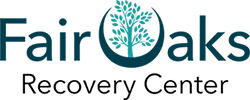A critical aspect of effective whole-person care in addiction rehabilitation is revealing the underlying factors for substance use disorder (SUD) and alcohol use disorder (AUD). This discovery happens through substance abuse counseling. It’s easy to feel apprehensive about therapy, especially if you’ve never done it before, but remember: you deserve to learn everything about your condition, and understanding the “why” is vital to your future health.
Factors That Contribute to Addiction
When people go through substance abuse counseling, they learn their individual risk and protective factors. The Substance Abuse and Mental Health Services Administration (SAMHSA) defines risk factors as “characteristics at the biological, psychological, family, community, or cultural level that precede and are associated with a higher likelihood of negative outcomes.” The organization clarifies protective factors as “characteristics associated with a lower likelihood of negative outcomes or that reduce a risk factor’s impact. Protective factors may be seen as positive countering events.”
All of us have biological and psychological characteristics that make us vulnerable to, or resilient in the face of, potential behavioral health issues, SUD, and AUD. The National Institute on Drug Abuse (NIDA) indicates that no one factor predicts addiction—it’s usually a combination of risk factors, such as:
- Biology. Genetics account for approximately 40–60 percent of someone’s addiction risk. Generational trauma, gender, ethnicity, and the presence of co-occurring mental disorders—such as heritable anxiety, bipolar disorder, and depression—may also increase risk for drug use and addiction.
- Environment. We all have many different influences, “from family and friends to economic status and general quality of life,” NIDA notes. Factors such as adverse childhood experiences, poverty, peer pressure, early exposure to drugs and alcohol, and stress greatly affect the likelihood of substance use addiction.
- Development. “Genetic and environmental factors interact with critical developmental stages in a person’s life to affect addiction risk,” NIDA states. Substance and alcohol misuse can happen at any age, but teenagers are particularly at risk “because areas in their brains that control decision-making, judgment, and self-control are still developing” and they’re more prone to dangerous behaviors.
However, many people have protective factors in the above categories as well. So a substance abuse counselor often sheds light on how risk and preventative factors intersect, and how they affect a chronic disease such as AUD or SUD.
What to Expect With Substance Abuse Counseling
According to SAMHSA, “counseling and therapy are usually focused on developing healthy skills to cope. It can help you better understand the core cause of your thoughts and behaviors so you can change unhealthy patterns.”
Is this an easy process? Honestly, not always, especially if:
- You entered treatment against your will.
- SUD or AUD is complicated with other health and behavioral issues.
- Withdrawal has been a long and complex ordeal.
- There are feelings of shame, blame, guilt, or vulnerability.
- You don’t believe in talk therapy and other forms of counseling.
- There are numerous risk factors that need to be identified and examined.
- Addiction is viewed as a moral failing rather than a chronic brain disease, whether by you, your family, or your community.
The American Counseling Association indicates that a substance abuse counselor has a responsibility to establish a “therapeutic alliance” in order for treatment to be effective. This bond, according to the ACA, is defined as:
- “A mutual respect is present between the client and the counselor as they embark on the shared purpose of resolving the client’s issues.”
- “Once safety and trust have been established, honest disclosure from the client is required, alongside support and nonjudgmental feedback from the counselor.”
So how is this alliance achieved? Wake Forest University outlines the following steps, which we provide verbatim:
- Sense of connection. The counselor and the client should feel a sense of connection or a bond. While they have a professional relationship, they should be respectful of each other and committed to a shared goal.
- Trust. The counselor and the client should trust one another. The client shouldn’t be skeptical of the process, and the counselor should trust the client’s emotional and mental investment in treatment.
- Collaboration. The counselor and the patient should work together on the recovery process, sharing decision-making.
The university further notes that a counselor should:
- Ensure patients know they’re interested in their well-being.
- Be attentive during sessions.
- Express empathy for the client’s problems.
- Understand and communicate the foundational issues at play in recovery.
How well your counseling sessions go and your healing process is dependent on this alliance.
Make Substance Abuse Counseling More Productive
What can you bring to this alliance? A lot, actually. Remember, you deserve to transition into a healthy recovery and learn how to manage SUD or AUD effectively. GoodTherapy provides nine ways to make therapy work for you:
- Create an authentic connection with your therapist.
- Bring all of the different parts of your personality into your session.
- Allow all of your emotions to be present.
- Instead of always venting about others, keep the focus on yourself.
- Be curious about why you are the way you are—and don’t judge what you discover.
- Take responsibility for your behavior, but not for things out of your control.
- Use therapy to identify themes and patterns in your life.
- Continue your work outside of session.
- Use your challenges to learn more and create growth opportunities.
The Whole-Person Care Approach at Fair Oaks
The board-certified professionals at Fair Oaks Recovery Center in Sacramento, California, specialize in an evidence-based approach to addiction rehabilitation. This means developing an individualized system of care for you or a loved one that includes different forms of counseling, holistic therapies, and more. Ask our admissions team how this philosophy creates more success for you.



